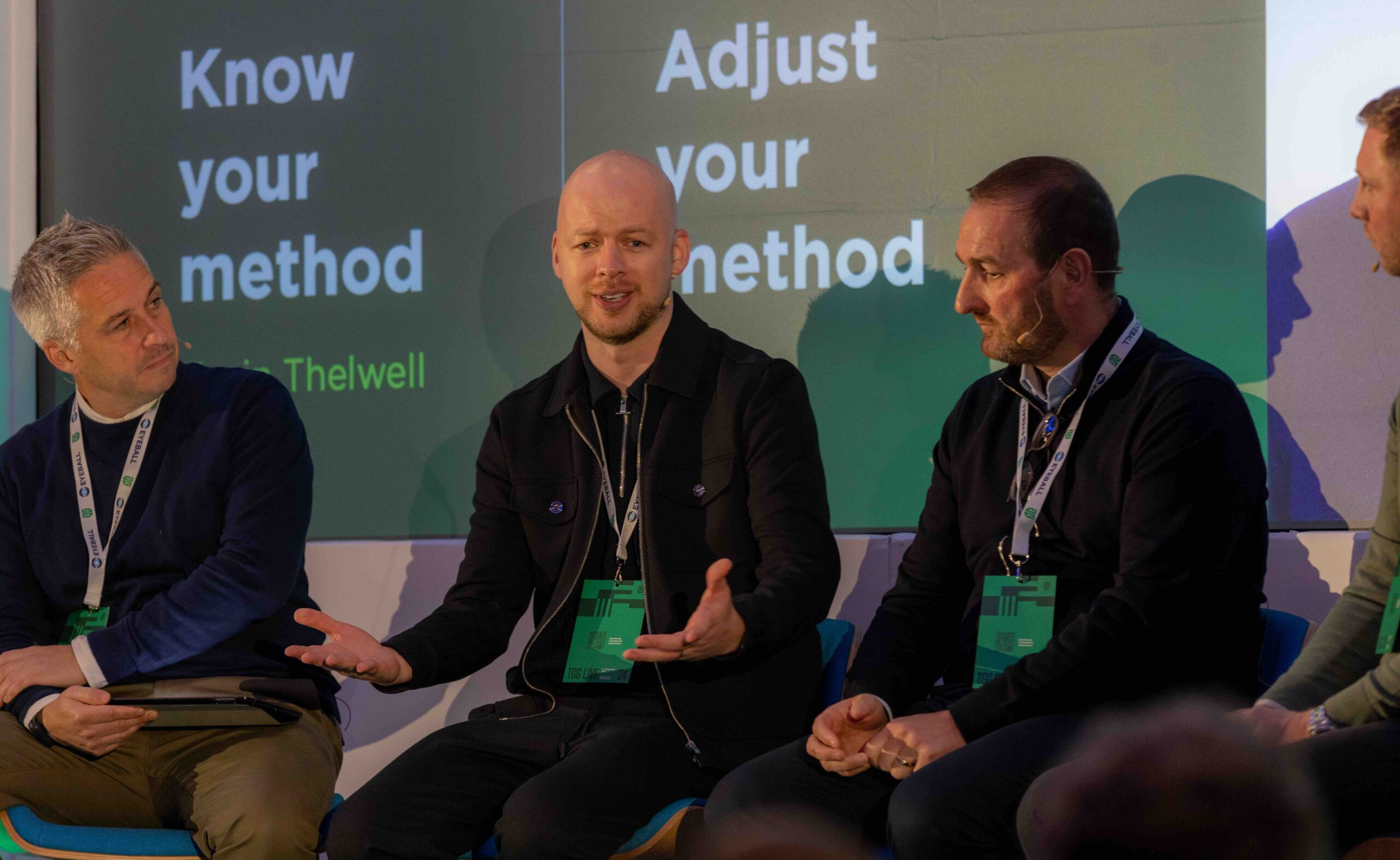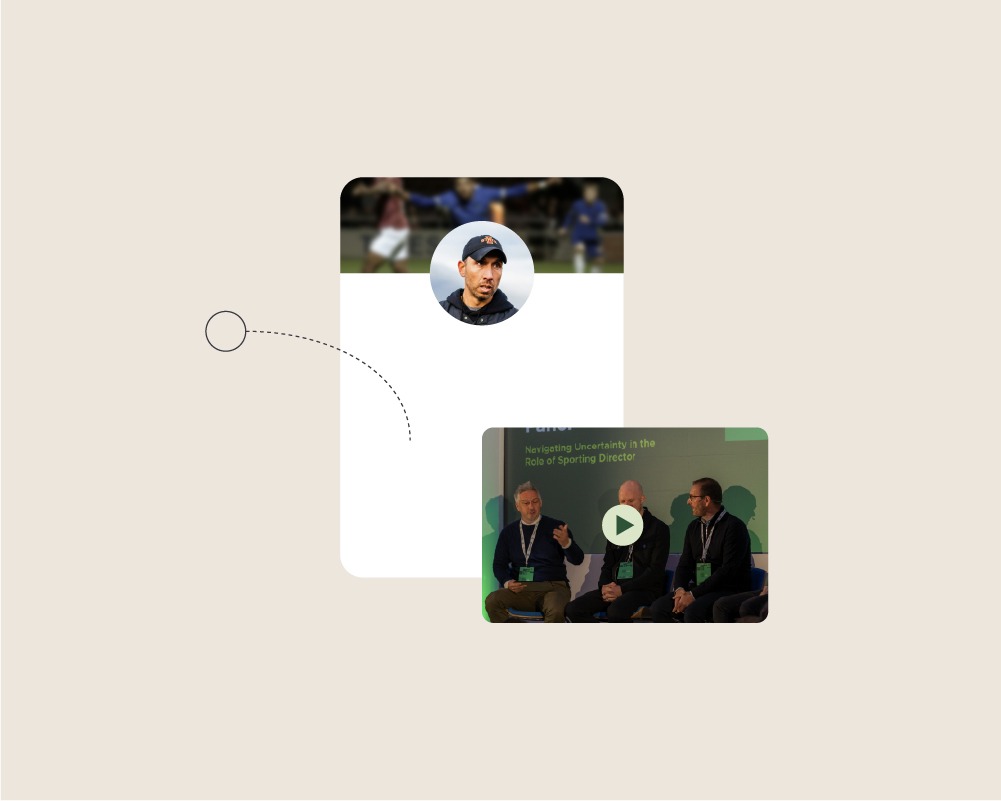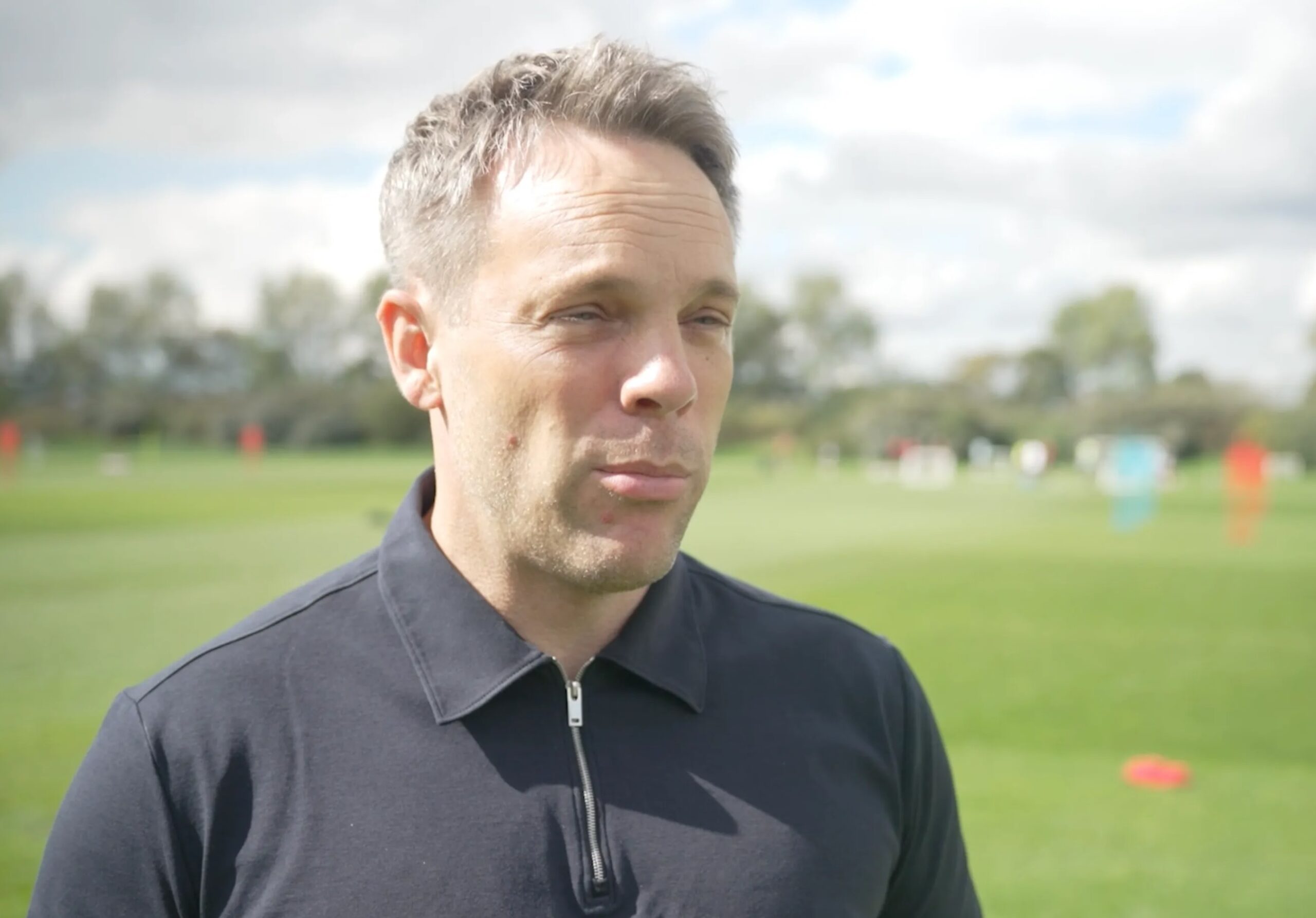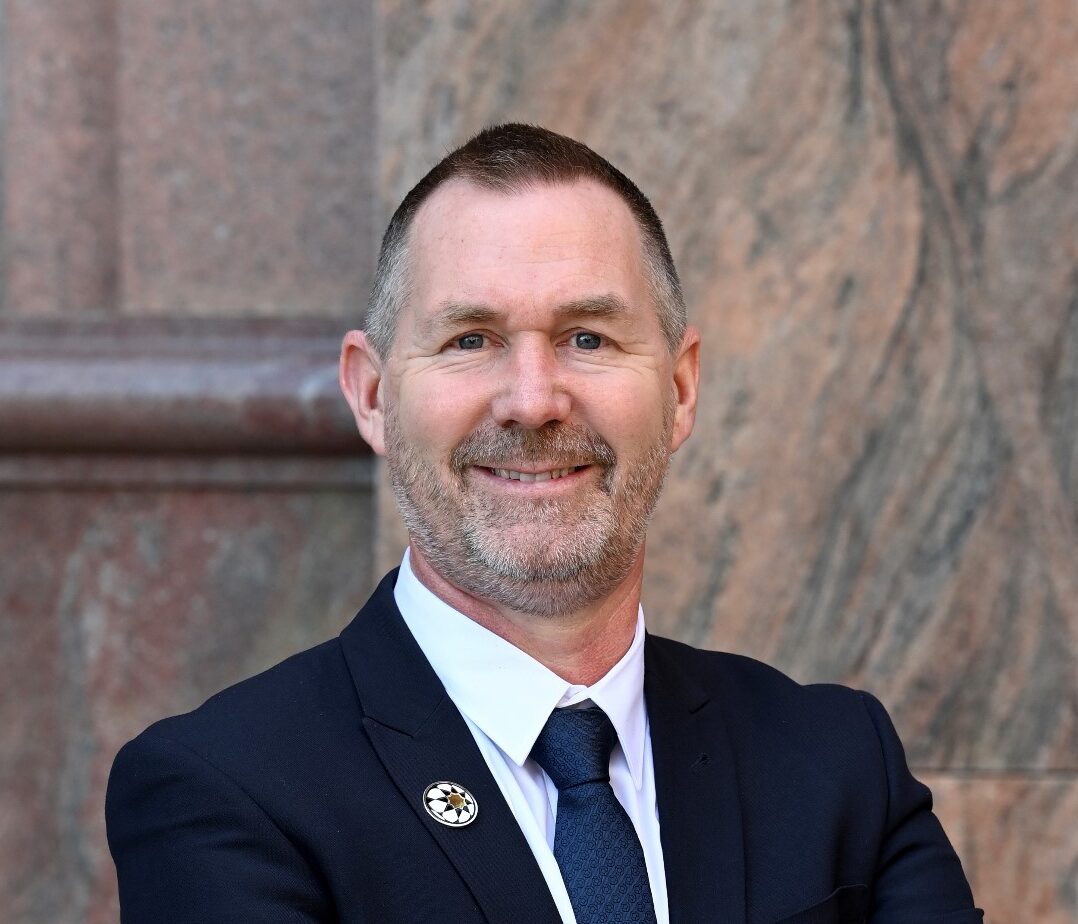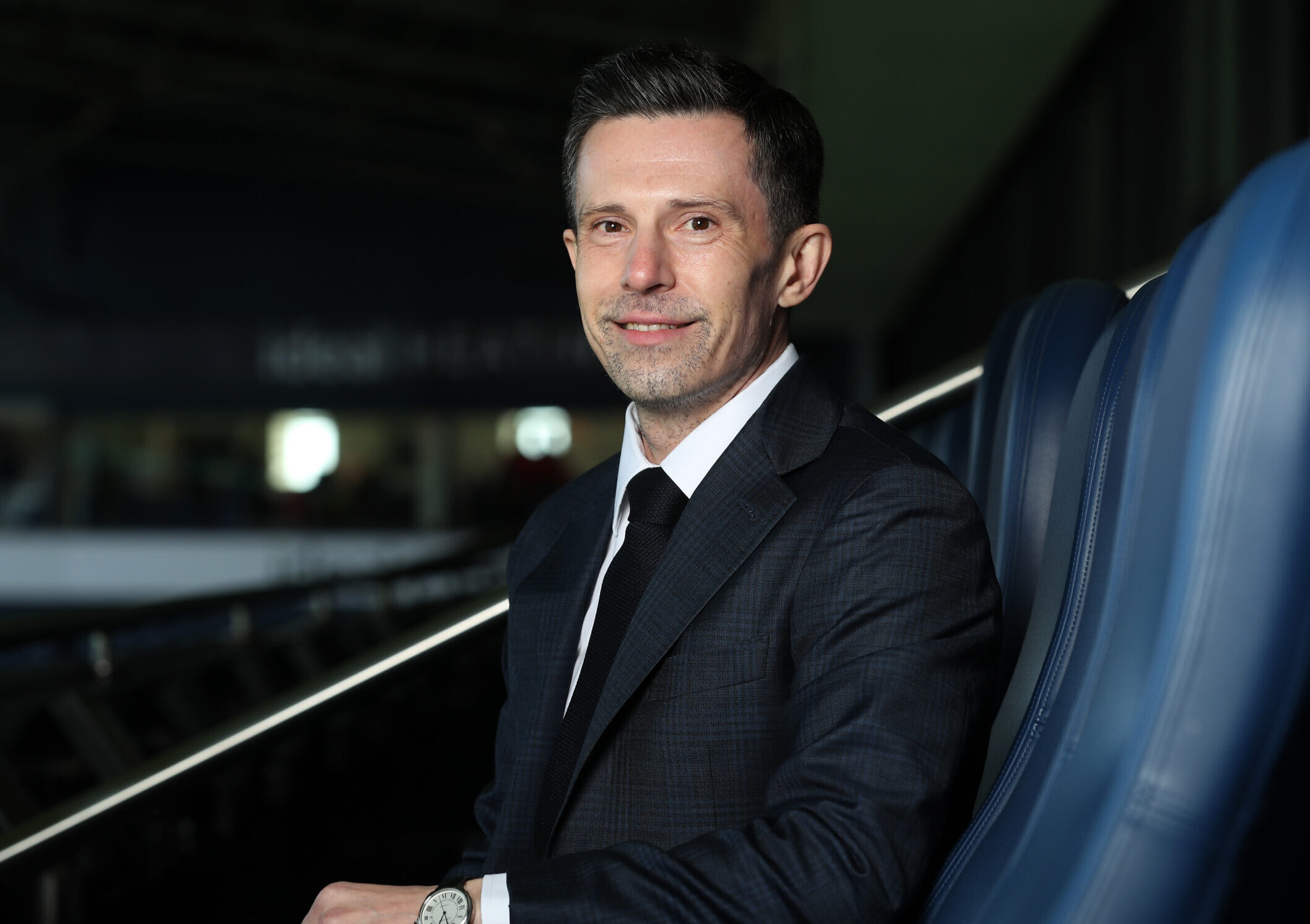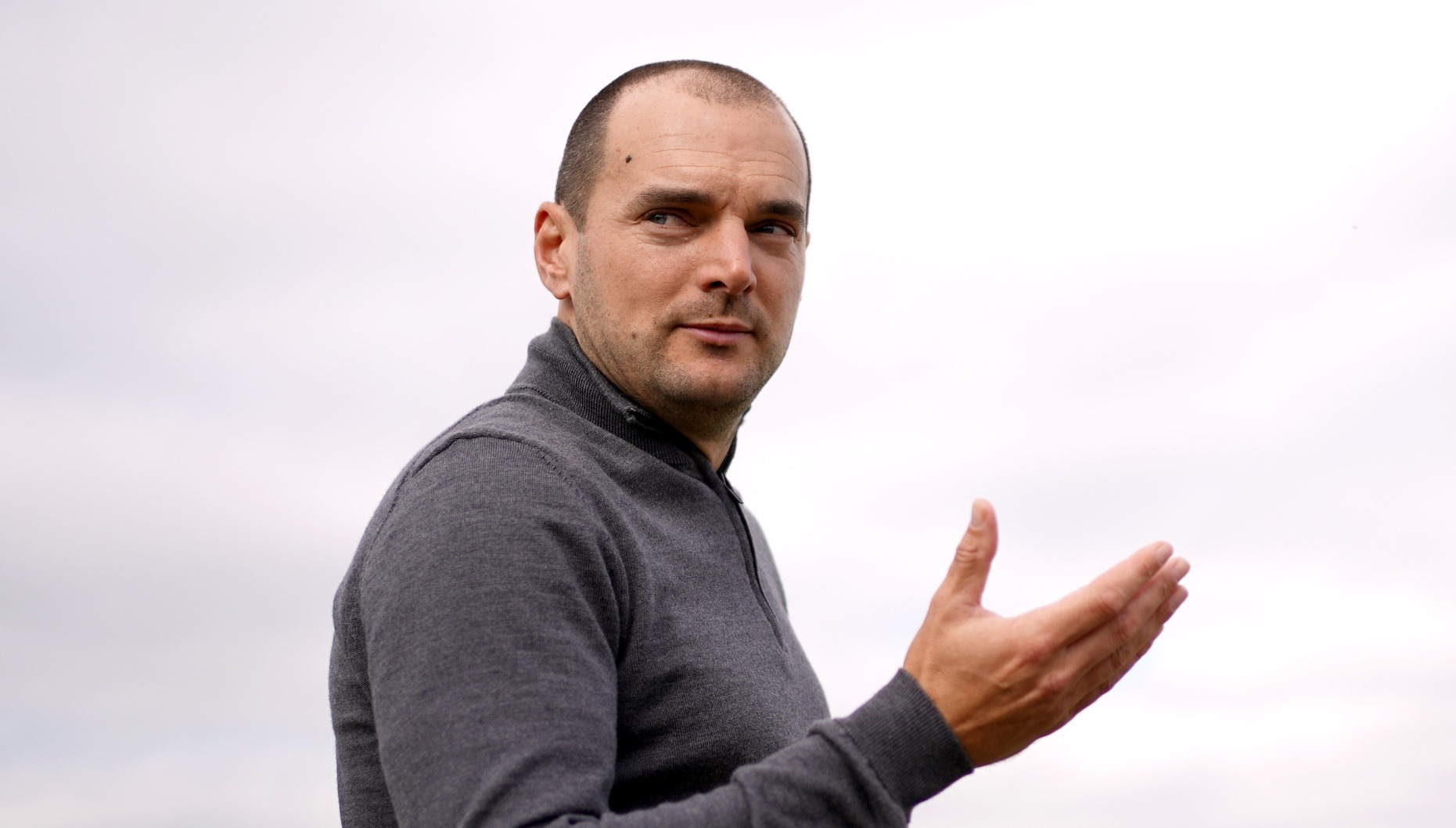
Stuart Webber: Thinking about the Sporting Director of the future
Written by
Simon Austin
January 20, 2025
For the first time in 25 years, Stuart Webber has had an extended break from working in football.
The last 10 months have been an opportunity for the 41-year-old to recharge, reflect and learn. He’s been sharpening up his Spanish, has visited Red Bull Formula One to discover how they deal with data and has spoken to several young players about their views on the future game.
“I’m only young, 41, but I have had 10 years’ experience as a Sporting Director,” Webber tells TGG. “I still think I’m young enough to develop. When I’m 50, I want to be in my prime.”
Over the last decade, the Welshman became one of the most prominent and high-profile Sporting Directors in English football. He started out in the role at Huddersfield Town, helping them gain promotion to the top flight for the first time in 45 years, before the call came from Norwich City.
The Canaries had lost their way following relegation from the Premier League and Webber gave them renewed direction, instigating changes that led to two Championship titles. At both clubs, certain characteristics came to the fore (in the early days at least): an utter ruthlessness when it came to implementing a vision and sacking staff; the hiring of little-known German Head Coaches; and straight talking, which sometimes landed him in trouble.
He says he’s become calmer and more understanding as time has gone on. Fatherhood started that process and his experiences over the course of the last year have encouraged it.
“At the start at Huddersfield and Norwich I was incredibly ruthless and you do have to have that streak in you,” Webber admits, “but I became a different leader over time, much more empathetic. When I look back on my time as a Sporting Director, I’m very happy with what I did and how I developed and grew.”
Near-death experience on Everest
Webber officially left the employment of Norwich City in April 2024 and embarked on a quest to climb Mount Everest, earth’s highest mountain above sea level. Training had gone well and he was raising money for The Summit Foundation, set up with his wife Zoe to help underprivileged youngsters, but the climb almost ended in disaster.
“We were up just over 6,000m and I started feeling ill,” Webber recalls. “I took some time out in the tent, thinking I had a cold, but got iller and iller over the next three days. Eventually we left the camp to go down and then got a helicopter to hospital in a place called Lukla. I had pulmonary edema, which is essentially fluid on the lungs and means your body is drowning itself.

Webber was attempting to fulfil a lifelong ambition by climbing Everest
“When I got back to Norwich, I still felt really ill. I had terrible chest pains and headaches and was coughing up blood. I was struggling to breathe and couldn’t move. The doctor I’d worked with at Norwich, who’s a great guy, took me straight to A&E and that’s when they found out I had pneumonia and blood clots in my head and chest. They said, ‘You’re a lucky guy to have got here at this stage.’
“The specialist said, ‘I’ve seen patients with clots like this who have died.’ I’m grateful to be alive, to be healthy. It’s certainly changed my perspective on life. I don’t worry about what people think of me any more. I want to work again, because I love work, and I want to enjoy time with my son and football and Formula One, which are things that drive me in life.
“Every morning now I wake up and I think, ‘Phew, I’m here.’ That’s how fragile life is and I’m very grateful.”
In recent months, Webber has been working as a consultant for an MLS club, learning Spanish, “which is at a decent level now,” and working with a couple of partners on a business idea they’re looking to launch soon.
The appeal of returning to the role of the Sporting Director remains strong though.
“My dream has always been to work abroad and become a much better all-round Sporting Director, then hopefully come back to the UK and take on a really big project,” he admits. “That could be a big club – but I’m not obsessed by that – or a club that has been underperforming but has real potential to do something special.
“I’d love to do the job abroad, that’s my first choice next. I’ve come close to a couple of bits, but it either hasn’t been quite right for me or perhaps wasn’t right for them. Getting back into another club in England, it would have to be right.
“I don’t mean that arrogantly, but I’ve been very fortunate to work for two amazing owners (Dean Hoyle at Huddersfield and Delia Smith and Michael Wynn-Jones at Norwich) and I wouldn’t just go back and work anywhere.”
Data and tech
Webber is a familiar face and voice for followers of TGG. He appeared on Episode #48 of the TGG Podcast, when his time at Norwich was coming to a close, and has presented at a couple of our conferences. Hearing from him is always interesting, because he speaks directly and tends to deliver fresh insights.
It’s no surprise to hear that he’s used the last 10 months to “do lots of study visits” – to different industries, different football clubs, different sports – and this has helped him develop his views about the industry.
A big focus has been on data and tech and one of his most memorable visits was to the Red Bull Formula One team in Milton Keynes, along with the Brentford Director of Football Phil Giles.
“They were talking about data and how many simulations they would run through prior to a race,” Webber reveals. “It was literally billions of data points, it blows your mind. I asked, ‘Who sees this and how do you break it down?’
“They said five people – the two drivers, Christian Horner (Team Principal), the Race Engineer and Jonathan Wheatley (Sporting Director). They said all these data points will go to a three or four-page report, because it’s about the key bits of information.
“Formula One’s data is off the charts and still they were insisting on three or four pages. I look at football and see the Set Piece Coach on the sideline with a player who’s coming on as a sub and they’re showing them a massive document and I think how can you take all that on?!
“That isn’t going in, let alone with the emotion of 50,000 people around you. The best clubs are doing it, where the data takes you to a one-pager of the why. That’s the secret sauce.”
At Norwich, Webber drove the creation of a “really good data and innovation team” that meant the club “were probably ahead of the curve compared to our peers,” but he is aware that the game is constantly evolving in this area.
”I’ve really wanted to learn about the next level, in terms of AI and predictive modelling,” he says. “I’ve had some really interesting meetings with data companies about AI and where they think that’s going to go.”
Human relationships
Despite the rapid rate of change in data and technology, Webber says being able to develop relationships remains the foundation rock for the Sporting Director.
“This is a leadership role and you’re dealing with human beings,” he says. “The computer can’t always tell you how to deal with that.”
As ever, he’s been doing a lot of reading recently – “I’m not particularly well educated, but I’m well read” – and one of his favourite books has been Radical Candor, by Kim Scott.
“She says that before you have difficult conversations, you have to have people trust and respect you,” he explains. “We see that failing a lot with leaders in all walks of life. So that means spending time with all of the staff, every single person, connecting with them and understanding them.
“First people have to trust you and then you can have difficult conversations, because people know you want the best for them.”
During his sabbatical he’s also met with several young players, both from previous clubs and beyond, in order to try and understand “the player of the future.”
“How a 20-year-old sees the world is very different to me,” he admits. “In my next job, it will be important to step back and see things from other people’s point of view. There are certain values that should always stick with us – manners are the bare minimum I expect from anyone I work with and you must respect the staff who work hard for you. That’s basic and has to be embedded into the cultural environment you build.”
We can be so prescriptive now, but we shouldn't be putting limits on performance.
Stuart Webber
We’ve previously written on TGG about elite footballers becoming “independent entrepreneurs” who take control of their own careers and treat themselves like businesses. This includes employing their own specialist staff – a phenomenon that Webber says will only accelerate in future.
“Do we fight it or embrace it? My view is the latter,” he says. “Ultimately, the player knows their own body best. You have to respect why they want the outside support and communicate with the guys who are working with the athlete.
“This is where you have to drop your ego and understand who the most important person is – the player. We’re talking chefs, physios, fitness coaches, psychologists, individual technical coaches, data scientists. The flip side is that that individual delivery has to understand the context of what the club has asked the player to do.”
Webber believes psychology will become a bigger influence in football – in all departments.
“The most successful performance practitioners of the future will be the ones who can ally sports science knowledge with psychology,” he says. “We can be so prescriptive now, but we shouldn’t be putting limits on performance. We can also have a lot of young inexperienced people in these positions who go on what the textbook tells them. The athlete knows their own body best.”
Sporting Director of the future
When Webber joined Huddersfield Town, in 2014, there were few Sporting Directors in England. Now every Premier League club has at least one and even teams in non-league are hiring for the role. Webber says the understanding of the position is much much better than it was a decade ago, but that there are still some challenges.
One is understanding at Board level, meaning “there are still too many glorified Heads of Recruitment who are called Sporting Directors.”
“There is still too much emphasis on judging people purely on recruitment, which isn’t fair,” the Welshman argues. “As Sporting Director, you’re recruiting coaches, staff at all levels, dealing with culture and environment, infrastructure, long-term planning of the Academy. Yet make one bad signing and the world wants to beat you up for that.
“I can remember when I was Liverpool (as Director of Academy Recruitment), Damien Comolli was the Sporting Director and got absolutely hammered for the signing of Jordan Henderson, because in the first six months he wasn’t magnificent. Everyone was forgetting he was a young guy.
“When Liverpool win the Premier League, he’s the captain. For me as a young guy, that was a lesson. When you’re signing players, you have to have real conviction that they will come good in your environment. That’s not tomorrow afternoon – the projection has to be medium to long-term and you don’t just throw him in the bin quickly.”
Another interesting question is how Chief Executives and Sporting Directors dovetail, now that the latter role has become more prominent.
“If the Sporting Director is doing things like negotiations, how does the Chief Executive dip in and out of that? That’s something clubs need to work on.”
I didn’t mind getting criticism for talking too much, because I would rather be doing that than not talking at all.
Stuart Webber
Webber is quite clear on what the Sporting Director role should look like.
“My deep belief is that being a Sporting Director means leaving a club in a better place than when you found it,” he insists. “That’s culturally, infrastructure, staffing structures – it’s future proofing.
“If you look at the work we did at Norwich, we completely transformed the training centre into a world-class environment. That stands the test of time. Players will be going through that Academy for the next 20, 30 years.
“Players come and go, staff come and go, Sporting Directors come and go, but when they leave, things shouldn’t fall apart.”
This brings us onto our final topic of a thought-provoking couple of hours: how visible should a Sporting Director be? At Norwich City, Webber frequently fronted up for media, which many in the position don’t do.
“I didn’t mind getting criticism for talking too much, because I would rather be doing that than not talking at all,” he reflects. “How can the fans buy into your plan if you haven’t told them what it is? It’s a fine balance.
“Otherwise, I worry too much pressure is on the Head Coach to talk. As Sporting Director, the Head Coach is your direct report and they need supporting and protecting. I do look back and think I over-protected people in the most senior positions though. I look back and think I took bullets for other people when I shouldn’t have.
“At times at Norwich, I ended up getting involved in so many different things, because the owners had so much trust in me. In my next job, I would be more strict about that – ‘I’m not giving my time for that, because that won’t be a gamechanger for us.’ Having that real focus is important.”
Despite all the discussion about media, the job is ultimately about what you do though.
“I think if you asked staff at Huddersfield and Norwich about me, they’d say, ‘he got stuff done,’” Webber says. “What I’m most proud of is that it was about action. Norwich had talked about building a training ground for years, but never put a spade in the ground.
“If we say we’re going to get something done, we go after it. Don’t keep talking about it.”
Follow Us
For latest updates, follow us on X at @ground_guru
